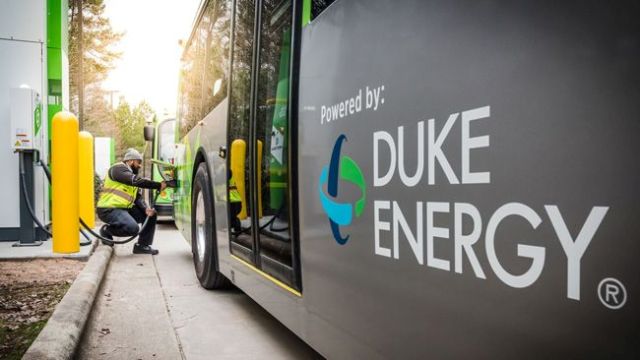Duke Energy revealed that six utilities are planning to offer a network of charging stations connecting highways in the South, Midwest, Gulf and Central Plains regions.
The Electric Highway Coalition – made up of Duke Energy, American Electric Power, Dominion Energy, Entergy Corporation, Southern Co., and the Tennessee Valley Authority – will enable EV drivers seamless travel across a broad portion of the country through a network of DC fast chargers.
“The path to cleaner transportation is a robust charging infrastructure along the nation’s major highways,” said Lang Reynolds, director of Electrification Strategy for Duke Energy. “Range anxiety is a barrier to more EV adoption. This coalition can erase those obstacles and help deliver the benefits of EV ownership to consumers.”
The companies are each taking steps to provide EV fast charging options within their service territories to facilitate interstate travel.
The Edison Electric Institute estimates 18 million EVs will be on U.S. roads by 2030. Charging stations will provide a high-powered fast charging experience as new EV models released on the market are capable of charging at faster and faster speeds.
Duke Energy’s Park and Plug pilot has installed more than 570 EV public charging stations in the Florida state. Fifty of the 570 are fast charging stations connecting areas of Florida previously underserved by EV fast charging infrastructure. To date, drivers have used the Park and Plug network for over 60,000 charging sessions, displacing more than 90,000 gallons of gasoline.
Regulatory action in 2020 led to pilot programs being approved in both North Carolina and South Carolina. The pilots will lead to full fast charging for all types of EVs in about 20-30 minutes.
In North Carolina, a $25 million pilot program will lead to the installation of 200 public Level 2 and fast charging stations, additional stations at multifamily buildings and a school bus electrification pilot that will allow school districts to change out diesel buses with electric ones.
In South Carolina, the company will provide up to a total of $1,000 for 400 residential Duke Energy Carolinas customers who install a Level 2 charging station, provide access to their charging data, and manage EV charging load to occur during off-peak periods. The company will also deploy 60 fast chargers there to expand access to fast charging infrastructure in the state.

